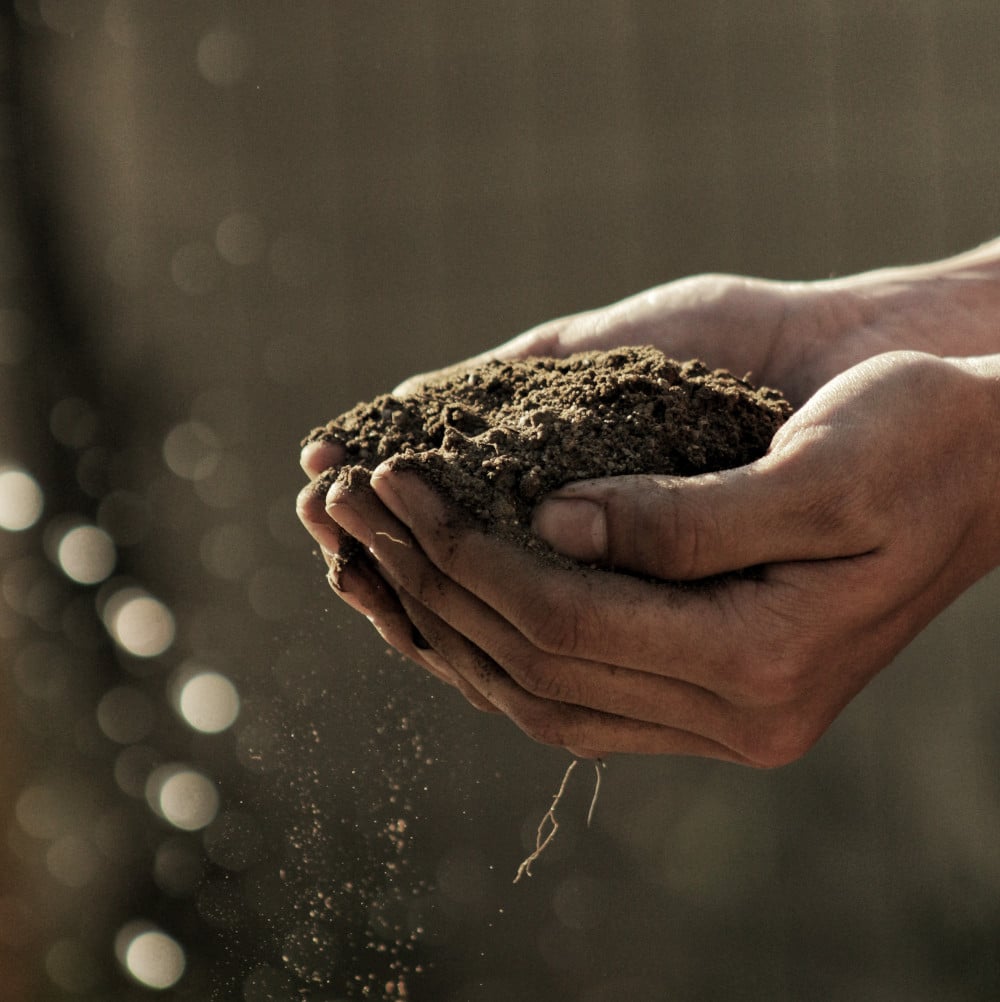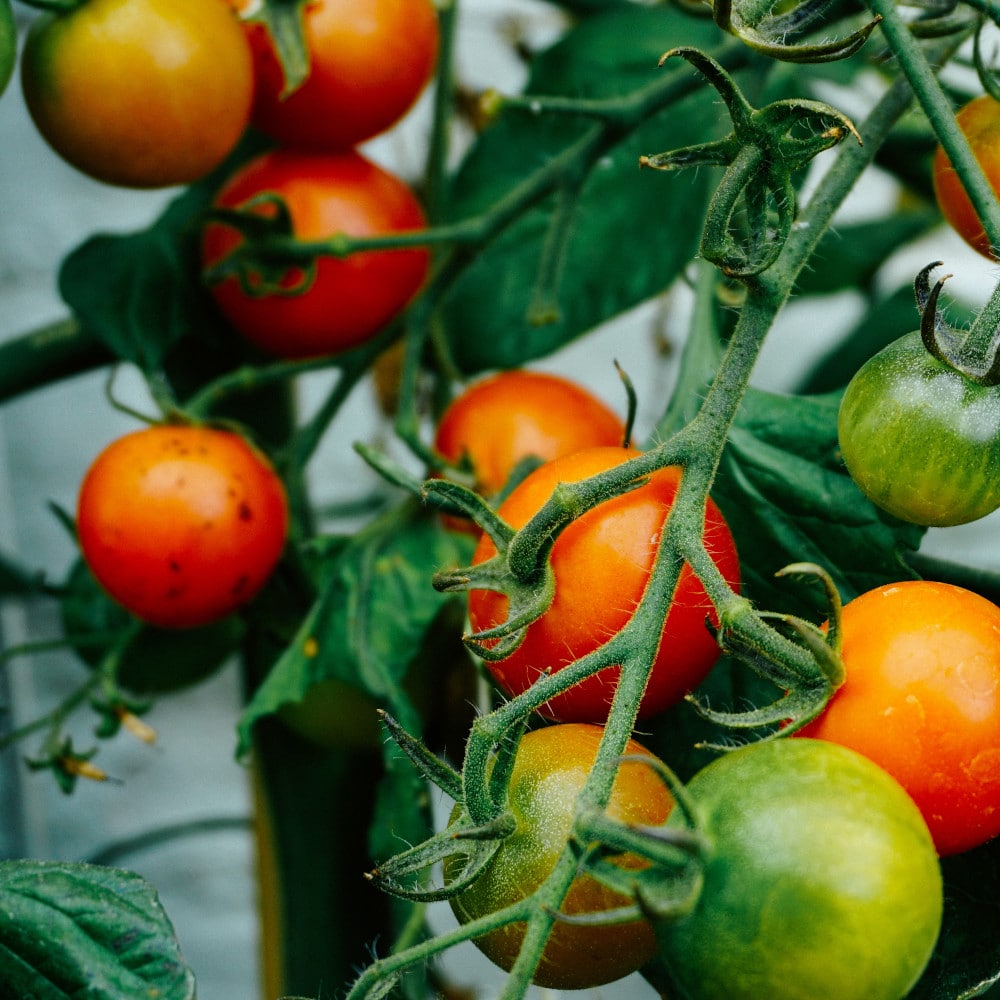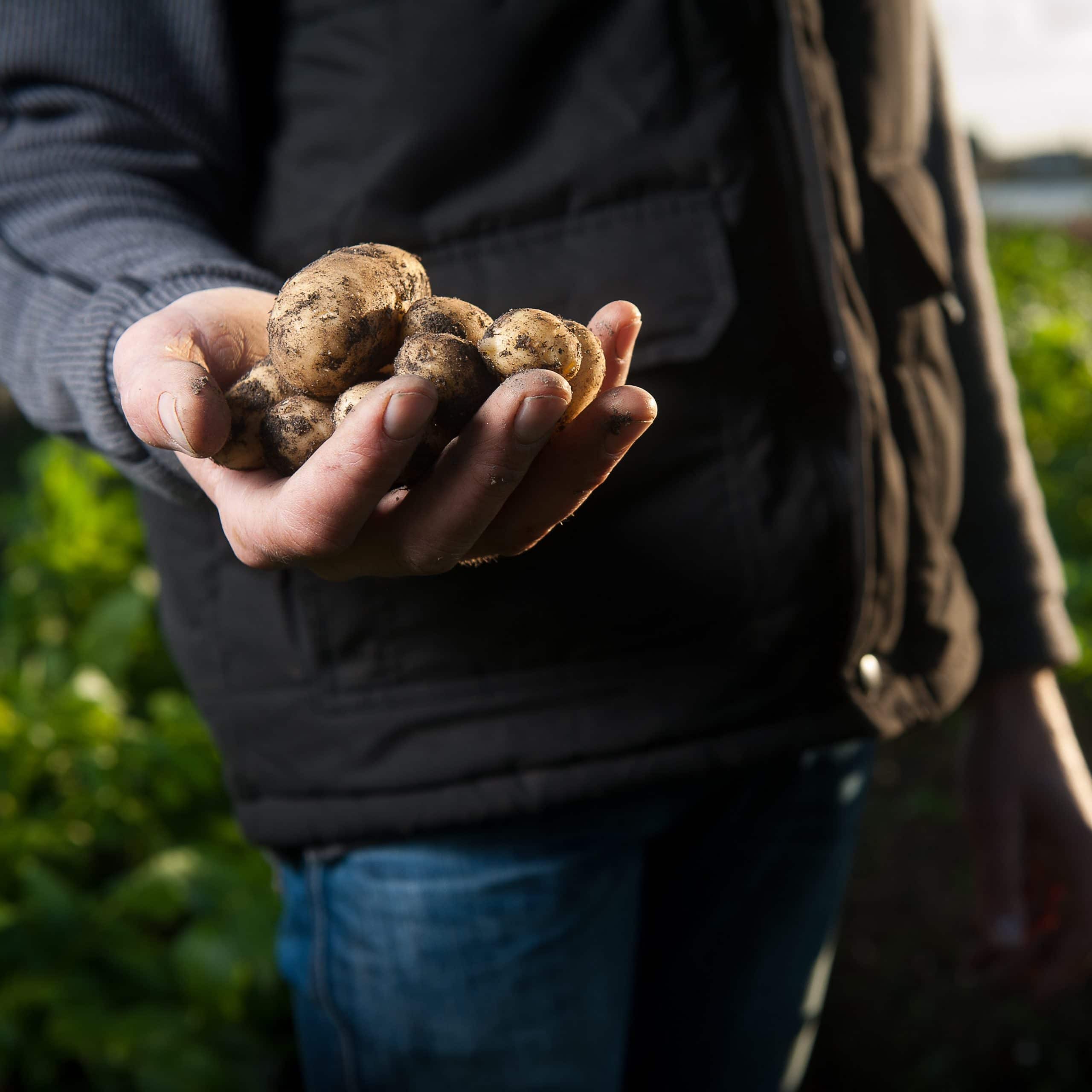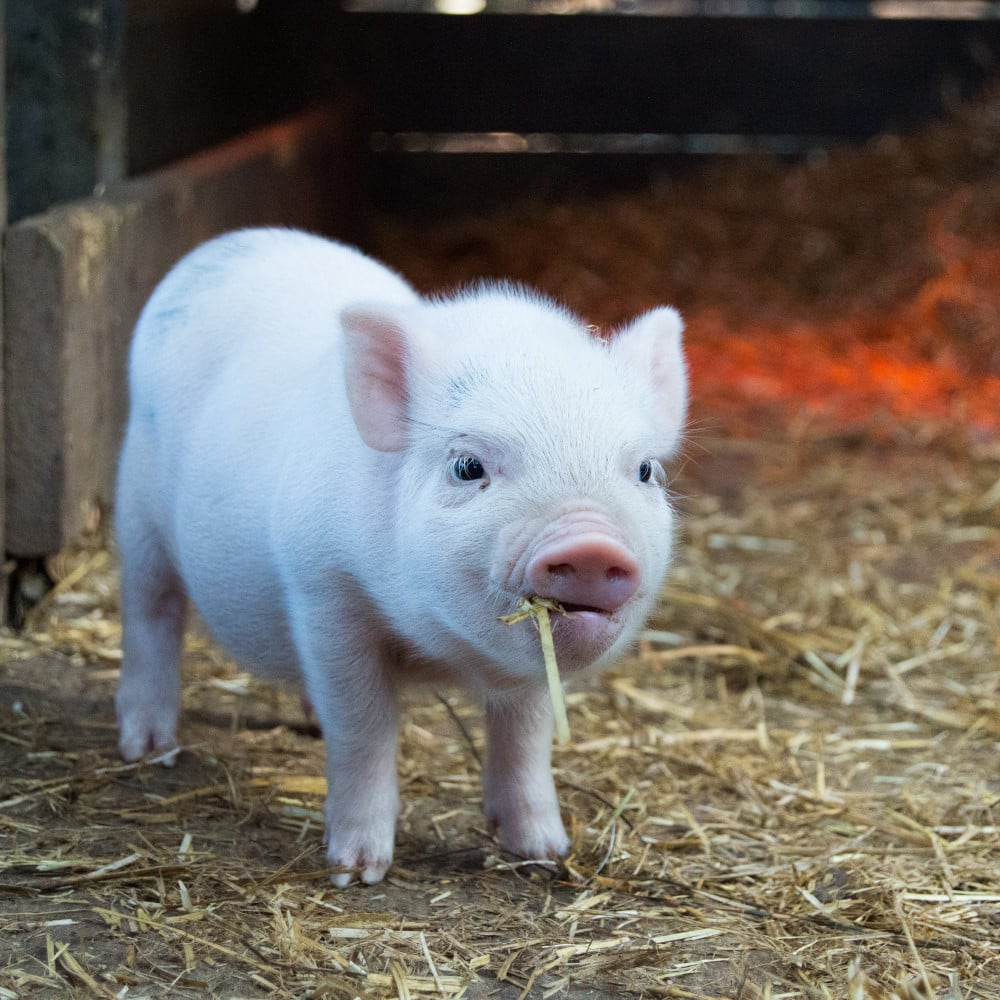THE SOIL IMPROVER
Biochar is not a fertilizer itself, but a carrier material. Biochar introduced with fertilizer, cattle manure or compost into the soil and stores these substances. There the carbon particles provide a habitat for many useful microorganisms, fungi, and bacteria, from which the cultivated plants benefit. In addition, thanks to its porous structure and large inner surface, biochar is excellent for nutrient and water storage.








